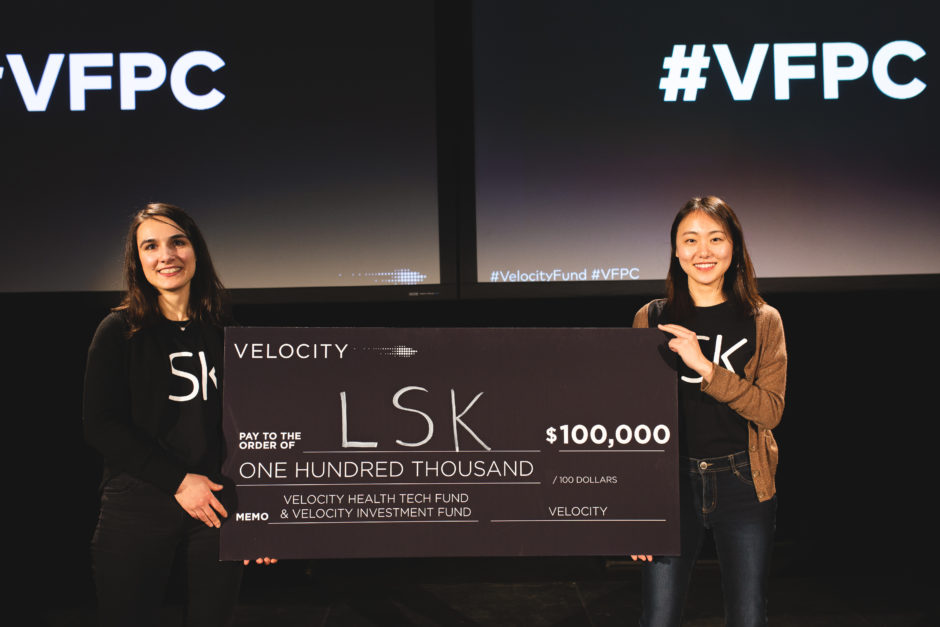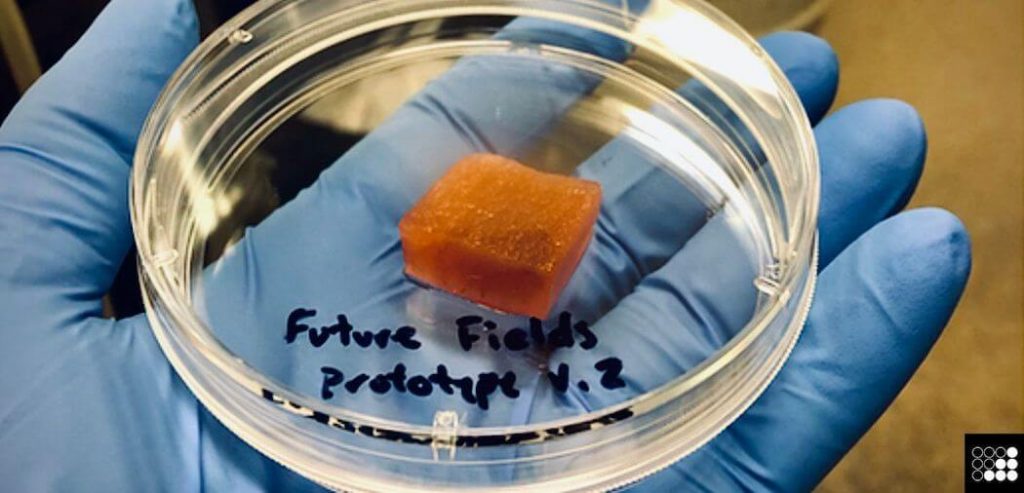This week, Y Combinator (YC) is holding its Summer 2020 Demo Day, the 31st for the Silicon Valley incubator. Twelve Canadian startups were part of this YC cohort.
The demo day is being hosted virtually Monday and Tuesday, with 11 Canadian startups presenting on the record. BetaKit has agreed to keep one of the startups off the record as they remain in stealth mode. YC’s Summer 2020 cohort comprised 197 companies overall.
From COVID-19 solutions to courier services and “Zoom for social events,” here are 11 Canadian or Canadian-founded startups that participated in YC this season.
LayerCI
LayerCI is a Toronto-based software startup that was founded in 2018 by current CEO Colin Chartier and COO Lyn Chen.
The startup has created software for developers, looking to make it easier to handle continuous integration (CI). CI refers to developers continuously pushing small changes to a central Git repository numerous times per day. The changes are verified by automated software that runs tests and ensures that customers don’t see any major issues.
According to LayerCI, its software is meant to be an easy to use replacement for transitional CI and “unlocks a development workflow previously only available at tech giants.” Its technology was grown out of problems Chartier says he faced as CTO of Toronto startup ParseHub. Chen is the former co-founder and CEO of a food tech company, Candy Cutlery.
LSK Technologies
LSK Technologies is a medical device company based in Kitchener that was spun out of The University of Toronto. The startup was founded by U of T alumni Seray Çiçek and Yuxiu (Livia) Guo, alongside Keith Pardee, an assistant professor focused on drug development and disease diagnostics. Çiçek currently serves as CEO, with Guo operating as COO.
The healthtech startup has developed PLUM, a portable diagnostic device that can test for COVID-19 as well as “hundreds of other diseases.” According to U of T, LSK currently has an alpha prototype and is working towards pilot projects in Ontario as well as Newfoundland and Labrador.

Pardee Lab reportedly received $500,000 from the Canadian Institutes of Health Research earlier this year in order to support field testing of LSK’s device and create 14,000 “lab-in-a-box” test kits for COVID-19. According to U of T, its Pardee Lab is using LSK’s devices to conduct patient trials in Toronto, Vietnam, Brazil, Ecuador, and Colombia.
LSK was also a winner of the Velocity Fund Pitch Competition held in February. The startup received a total of $100,000, apparently the largest amount ever for a Velocity Fund recipient.
BaseDash
Founded and run by Max Musing of Montreal, BaseDash is an internal tool for companies meant to help with editing databases “with the ease of a spreadsheet.” According to the startup’s website, it allows users to safely edit production data across teams, without the need for code.
A software engineering graduate of McGill University, Musing previously worked as an intern at Shopify and Mark43.
Clew
Founded in 2019, Clew is a Toronto startup that has developed a “unified file system for all apps.” The company was co-founded by Haishan Qian and Udara Jayawardena who met in their first year at Western University.
Clew’s technology allows users to house various cloud-based apps in one location, with the ability to organize and use the tools from within the Clew platform.
Prior to launching Clew, Jayawardena co-founded Tidl Inc. while in university, where Qian also worked. Tidl was later sold to New York-based Parsegon Inc. in 2018.
KeyDB
KeyDB is a NoSQL database, developed by EQ Alpha Technology Ltd. A NoSQL database is a type of database design that is said to offer more flexibility than traditional databases.
NoSQL stands for “not only SQL” and has been around since the late 1960s. According to IBM, these types of databases only recently become more popular “in the era of cloud, big data and high-volume web and mobile applications.”
EQ Alpha Technology Ltd. was founded in 2017 by John Sully (CEO) and Ben Schermel. The startup touts KeyDB as “up to” five times faster than competition and, according to its website, it is “on track to nearly double performance again by the end of the year.”
Future Fields
Future Fields is an Edmonton-based biotech startup that does research and development in the field of cellular agriculture. Cellular agriculture is the production of animal products from cell culture, rather than animals.
The startup, which was founded in 2018, aims to enable the commercialization of the cellular agriculture industry by tackling what Future Fields called some of the industry’s biggest challenges: providing customized growth media, growth factor, and enabling solutions at disruptive costs.

Future Fields is led by its trio of co-founders, CEO Lejjy Gafour, COO Jalene Anderson-Baron, and chief scientific officer Matthew Anderson-Baron. The group met while working and studying at the University of Alberta 10 years ago. Since Future Fields was founded, it has built a team of scientists with more than 40 research publications and over 50 years of research experience.
Nototo
Nototo is a “visual workspace” that “spatially organizes” information. It was founded by Chen Wang (CEO) and Austa Jiang (CTO).
The startup’s technology helps organize personal and team notes in one map-like netwok. Wang and Jiangmet launched the company after meeting in their first year at The University of British Columbia, while completing their electrical engineering degrees.
Oco Meals
Oco Meals is a meal delivery service based out of Vancouver. The startup was founded by CEO Kenton Jarvie and COO Anson Kung in March 2020.
The Vancouver company focuses on delivering prepared meals on a weekly basis that are sourced from local catering companies.
Since the startup was founded in March, it has brought in $25,000 in monthly recurring revenue, growing at a rate of 29 percent month over month, according to its YC pitch.
Kung formerly served as CTO of A&K Robotics, while Jarvie previously founded another Vancouver meal prep company by the name of Gomae Food Technologies.
Rally
Rally is a Toronto-based startup that touts itself as “Zoom for social events.” The company was founded by CEO Ali Jiwani, COO Amy Liu, and CTO Anson Kao in March 2020.
A video conferencing platform, Rally is focused on social events rather than work, and allows “breakout rooms in a shared video space.” According to the company’s website, it has hosted more than 500 events for clients that include Amazon, Harvard University and Quora.

Rally’s co-founders are a group of serial entrepreneurs. Jiwani was a co-founder of Toronto meal delivery service startup, MealSurfers, which he reported was acquired in 2016.
TyltGO
TyltGO offers an on-demand courier service that facilitates last-mile delivery for small businesses and enterprises.
The startup was launched in August 2019 by CEO Jaden Pereira and CTO Aaron Paul. Earlier this year, TyltGO, alongside LayerCI, took part in Accelerator Centre’s JumpStart program and was one of eight startups to receive $30,000 in seed funding and $10,000 in business support through the Accelerator Centre’s COVID-19 cohort of its AC JumpStart program. According to the company’s website, it is also backed by Communitech and MaRS.
TyltGO touts its offering as “Amazon-style same-day delivery” provided to small businesses under their own brand name “at a fraction of the cost.”
OpenUnit
Toronto-based OpenUnit has developed software for managing modern self-storage facilities. It was founded in 2019 by Taylor Cooney (CEO) and Lucas Playford (COO). The two met while employees of fellow Toronto startup Nudge Rewards.
OpenUnit calls its offering a “complete set of tools” designed for self-storage facilities of all sizes. Its features include customer relationship management, point-of-sale, marketing and SEO, team chat and employee management, accounting and bookkeeping, and enterprise security.
Phonic
In addition to the above 11 Canadian startups that participated in YC’s Summer 2020 Demo Day, another company with Canadian roots was also in the mix.
Phonic, while incorporated and currently operating out of the United States due to its participation in YC, was founded by CEO David Ferris and CTO Mitchell Catoen, who graduated from the University of Waterloo with degrees in engineering.
Phonic uses AI to turn surveys into interactive experiences. It allows companies to collect survey data through voice and video. According to the startup, this helps eliminate fraud and triples the “response quality” of surveys.

